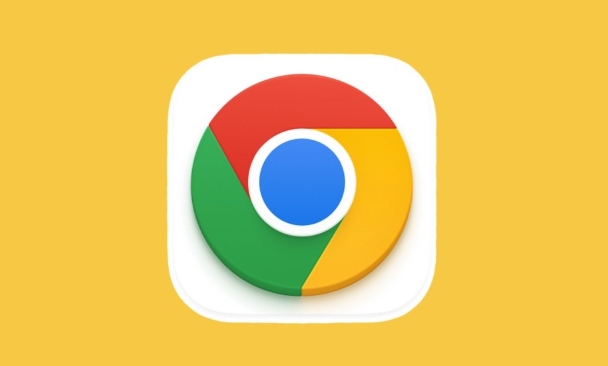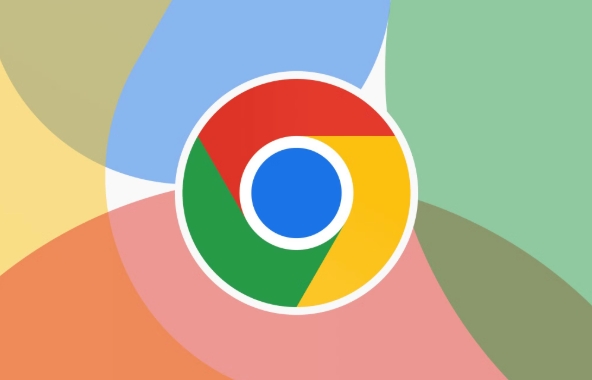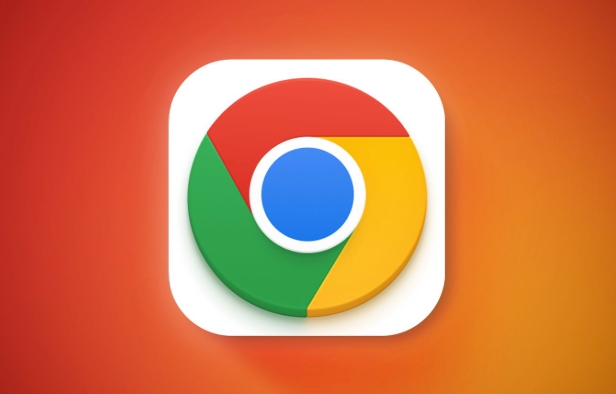How to use Chrome's built-in malware scanner
Chrome's built-in malware scanner is not a standalone antivirus tool, but a security feature integrated into the browser. To enable this feature, click the three dots in the upper right corner → select Settings → Click Security under Privacy and Security → Make sure "Enhanced Protection" is on and click "Run Security" to detect abnormal extensions and unsafe settings. This feature can identify potential threats in downloaded files, website content, extensions and certificates, and provides preventive protection, but it cannot replace system-level antivirus software. If you suspect that the computer has been poisoned, you need to use professional security software to investigate further.

Chrome's built-in malware scanner is actually not an independent antivirus tool, but a security feature integrated by Google in Chrome browser, mainly used to detect potential threats in browser extensions, download files, and web content. If you are worried that your computer or browser will be infected by malware, you can use this function to conduct a preliminary investigation.

How to turn on Chrome's security checking feature
Chrome's malware scanning is hidden in the "Secure" section of Settings. The opening method is as follows:
- Click the three dots in the upper right corner → select "Settings"
- Click "Security" under "Privacy and Security" on the left menu
- Make sure Enhanced Protection is selected in Safe Browsing Protection Level
When enabled, Chrome will automatically communicate with Google's servers to check whether the websites you visit and the files you download are in a known malicious list.

In addition, there is also an option to "Run Security Check" under the "Security" page. Clicking it allows Chrome to check whether the currently installed extension has exceptions, whether there are unsafe settings, and provide repair suggestions.
What types of malicious content can Chrome detect
Chrome's security mechanism is mainly focused on the following aspects:

- Download protection : When you download a file, Chrome will compare to Google's malicious file database. If you find risks, you will prompt you to cancel the download.
- Website Security Warning : If you are visiting a known phishing website or a page containing malicious scripts, a red warning page will pop up in Chrome.
- Extension Check : Some extensions may secretly collect user data or inject ad scripts. Chrome's security checks can identify such behaviors and prompt users to uninstall.
- Certificate Error Detection : When accessing an HTTPS website, if there is a problem with the certificate (such as expired, forged), Chrome will block access and prompt risks.
It should be noted that these functions are more of "preventive" measures than thorough system-level anti-virus. If you suspect that your computer has been poisoned, you still need to use special security software to further troubleshoot.
Frequently Asked Questions and Notes
-
Why are there no prompts sometimes?
Chrome's malware scans rely on Google's real-time database updates. If you visit a website that has just been hacked, the alarm may not be triggered immediately.
-
How to confirm whether you are infected?
If the following behavior occurs in the browser, it may be affected by malicious extensions or scripts:
- Home page has been changed
- A strange advertising pop-up appears
- Jump to an unfamiliar page when opening certain websites
At this time, you can view all installed extensions through "chrome://extensions/" and disable suspicious items.
-
Don't ignore system-level protection
Chrome's security features can only protect you from browsing and cannot replace antivirus software at the operating system level. It is recommended to use with Windows Defender or other trusted security software.
Basically that's it. Although Chrome's malware scanning feature is not omnipotent, as a daily browser, its protection mechanism is enough to deal with most common threats.
The above is the detailed content of How to use Chrome's built-in malware scanner. For more information, please follow other related articles on the PHP Chinese website!

Hot AI Tools

Undress AI Tool
Undress images for free

Undresser.AI Undress
AI-powered app for creating realistic nude photos

AI Clothes Remover
Online AI tool for removing clothes from photos.

Clothoff.io
AI clothes remover

Video Face Swap
Swap faces in any video effortlessly with our completely free AI face swap tool!

Hot Article

Hot Tools

Notepad++7.3.1
Easy-to-use and free code editor

SublimeText3 Chinese version
Chinese version, very easy to use

Zend Studio 13.0.1
Powerful PHP integrated development environment

Dreamweaver CS6
Visual web development tools

SublimeText3 Mac version
God-level code editing software (SublimeText3)
 How to fix the black screen issue in Google Chrome?
Aug 06, 2025 pm 12:22 PM
How to fix the black screen issue in Google Chrome?
Aug 06, 2025 pm 12:22 PM
DisablehardwareaccelerationbygoingtoChromeSettings→Systemandtogglingoff"Usehardwareaccelerationwhenavailable",thenrelaunchChrome.2.UpdategraphicsdriversviaDeviceManageronWindowsorSystemSettingsonmacOS,ordownloadthelatestversionfromthemanufa
 Google Chrome password manager is not saving passwords
Aug 02, 2025 pm 01:47 PM
Google Chrome password manager is not saving passwords
Aug 02, 2025 pm 01:47 PM
EnsureChrome’s“Offertosavepasswords”isenabledinSettings>Autofillandpasswords>PasswordManager.2.SignintoyourGoogleaccountandturnonSyncwithPasswordsincludedunderSyncandGoogleservices.3.Disableconflictingextensionslikethird-partypasswordmanagersor
 What is the 'Aw, Snap!' error in Chrome
Aug 04, 2025 am 01:21 AM
What is the 'Aw, Snap!' error in Chrome
Aug 04, 2025 am 01:21 AM
"Aw,Snap!" error is usually caused by website problems, browser extension interference, outdated Chrome version or insufficient system resources. It can be solved through the following steps: 1. Check whether it is a problem with the website itself, try to refresh the page, use other browsers, or wait for a while; 2. Exclude extensions or set interferences, use traceless mode to test and troubleshoot expansions one by one; 3. Update Chrome version and clear cached data; 4. Turn off hardware acceleration and check system resource usage. Trying one by one in sequence usually solves the problem.
 What is the 'utility process' in Chrome's task manager
Aug 05, 2025 am 07:43 AM
What is the 'utility process' in Chrome's task manager
Aug 05, 2025 am 07:43 AM
Chrome's utility processes are responsible for handling system-level tasks that are not related to web pages or extensions, such as managing downloads, handling clipboard access, running network stacks, etc. 1. It isolates different types of practical tasks to improve security and performance, such as handling network, GPU and audio related tasks separately. 2. It is normal for multiple utility processes to run at the same time. Each process works independently to prevent one problem from causing overall crash. 3. If a utility process occupies too much resources, it may be caused by temporary operations, such as downloading large files. If it continues to be high, you can try restarting the browser, checking for extensions, or updating Chrome.
 How to fix Chrome's download UI (bubble) not appearing
Aug 02, 2025 am 12:08 AM
How to fix Chrome's download UI (bubble) not appearing
Aug 02, 2025 am 12:08 AM
The Chrome download prompt box does not pop up may be due to the disabled notification permissions, abnormal browser settings, restricted background behavior, or corrupted program. 1. Check Chrome and the system's "notification" permissions to make sure it is not blocked; 2. Try to reset Chrome settings to the default state; 3. Test whether it is normal in incognito mode and troubleshoot the interference of the extension plug-in; 4. Update or reinstall Chrome to fix potential program problems.
 Google Chrome is not connecting to the internet but other browsers are
Aug 03, 2025 am 06:19 AM
Google Chrome is not connecting to the internet but other browsers are
Aug 03, 2025 am 06:19 AM
First,checkChrome’sproxysettingsanddisableanymanualproxyorsetupscriptifnotneeded;second,disableextensionsonebyoneortestinIncognitoModetoidentifyproblematicadd-ons;third,clearChrome’snetworksettingsbyflushingsocketpoolsandclearingDNScacheviachrome://n
 Why is Google Chrome autofill not working correctly?
Aug 02, 2025 pm 01:03 PM
Why is Google Chrome autofill not working correctly?
Aug 02, 2025 pm 01:03 PM
CheckifautofillsettingsareenabledandcorrectlyconfiguredunderChromeSettings>Autofill,ensuringaddresses,paymentmethods,andpasswordsareturnedonwithaccurateinformation.2.Verifysitecompatibilitybytestingautofillonstandardforms,asnon-standardorJavaScrip
 How to fix 'ERR_INSECURE_RESPONSE' in Google Chrome?
Aug 04, 2025 am 11:13 AM
How to fix 'ERR_INSECURE_RESPONSE' in Google Chrome?
Aug 04, 2025 am 11:13 AM
First,checkthewebsite’sSSLcertificateinChromeDevTools;ifit'sexpiredormismatched,theissueiswiththesiteowner.2.ClearChrome’sSSLstateandbrowsingdatatoremovecorruptedcache.3.Disableantivirus,firewall,orproxythatmayinterceptSSLconnections.4.ResetChromeset







